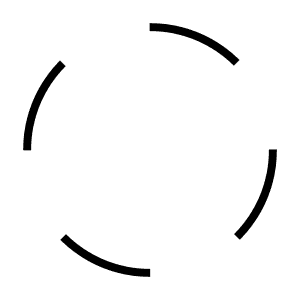On Bespoke, Omphalopticon presents a raucous, wheezing, intricately detailed audio scrapbook. A sequence of gleefully off-kilter compositions where drills and creaking gates are instruments. Where cacophonous cut-ups tangle with volcanic sand and snippets of conversations into a head-spinning collage.
Omphalopticon is the solo recording project of US-born, London, UK-based Andrew Ciccone. Bespoke marks his first physical release, following a series of digital only albums. His solo recordings conjure a curious space. Electro-acoustic strategies and a world view where everything is an instrument collide with a gleeful penchant for the peculiar. It’s heard immediately on Bespoke’s opener: ‘This is a Drill’. A stop-start cacophony of DIY tools and street chatter is punctuated with a comically loud crow’s call, before the machine returns in increasingly sideways fashion. On second track, ‘The Sniffle-Sneeze’, a sneeze which Ciccone self-induced while on holiday in Iceland is followed by a deluge. With a few exceptions, most of the sounds here were recorded in Ciccone’s neighbourhood in north-east London between 2022 and 2023. They’re assembled like a one-person game of exquisite corpse, bizarre associations and playful manipulations sending everyday sounds off their axis and into forms surreal yet captivating.
For Bespoke, Ciccone faced outwards in his compositional approach. “My previous work has been more formalistic, more sequestered from day-to-day life. Here there was a reactive approach, absorbing any and all things/ people/places which happened to be around at the time,” he explains. “I wanted to impose my own day-to-day surroundings onto the process, and vice-versa. There’s very little hands-off field recording here - virtually all the source clips have wacky backstories.”These backstories include leaving a recorder running in his knapsack while attending one of London’s Skronk free-improv events (‘Skunktronic’), or running around his flat capturing the sound of leaky taps on ‘The Going From Room to Room’. That track, the longest here, points to the space-time bending-nature of Ciccone’s collages, the domestic adventure interspersed with street recordings taken from Flores, Guatemala.
“One thing that sound collage entails - for me anyway - is curating clips from much longer source recordings. So, you develop an ear for what to select. I’m drawn to whatever moves me: whether something provokes laughter, fright, emotion, confusion, memory, imagination, whatever… Everything else gets discarded. The humour obviously sticks out but all those qualities are present,” he explains.
Alongside the overheard conversations come more planned fragments of speech, including a disarmingly sombre spoken word intervention by improvising guitarist Bettina Schroeder, who Ciccone collaborated with on the title track, and Ciccone himself reading a lecture by physicist Richard Feynman. “I latched onto the Feynman voice at some point as it’s almost like an exaggerated version of my own voice, one which I’m more comfortable inhabiting. I’ve steadily incorporated it into performance, where appropriate.”
While Bespoke resonates with the playful musique concrete of Graham Lambkin, the fixation on unconventional instrumentation that bridges the Bohman Brothers to Matmos, and the frantic tape collage energy of Aaron Dilloway, the world Omphalopticon creates is distinctly his own.
--
Omphalopticon is Andrew Ciccone: Voice, movement, field recordings, piano, drill, Richard Feynman voice, volcanic sand, bass clarinet bell, self-induced sneezing, shower, faucets, doors, gates, objects, tape machines, curation, composition, arrangements, mixing.
All sounds on Track 2 “The Sniffle-Sneeze” were recorded on Snaefellsnes peninsula, Iceland in October 2022.
Track 6, 'Bespoke', is a collaboration with Bettina Schroeder
All sounds between 5:11 and 8:08 of Track 7 “The Going From Room To Room” were recorded in Flores, Guatemala in January 2023.
All sounds on Track 4 “Skunktronic” were recorded at Skronk 118, New River Studios, London in November 2022.
All other sounds were recorded in other parts of northeast London in 2022 and 2023.
















